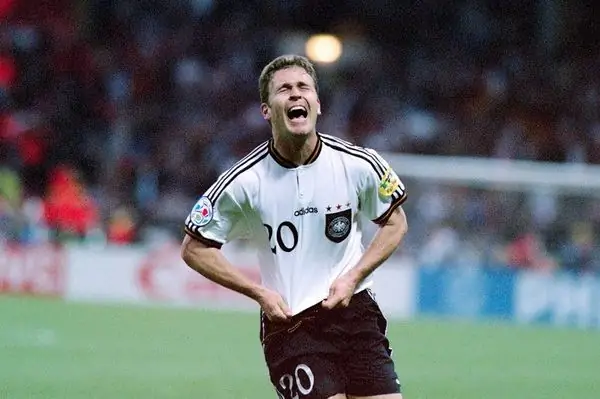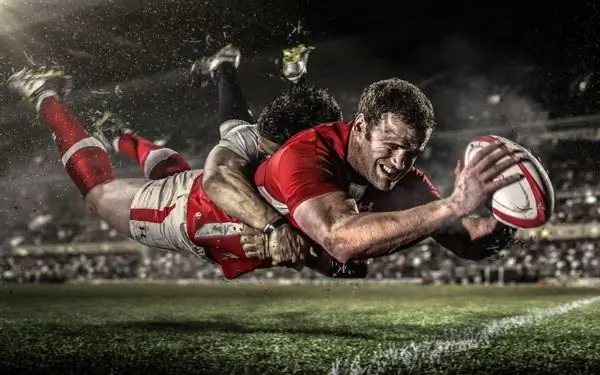- Author Xavier Leapman leapman@sportexistence.com.
- Public 2023-12-17 08:45.
- Last modified 2025-01-24 17:43.
At first glance, most sports events look quite simple and even primitive. But this is not at all the case - in order to avoid confusion or misunderstanding of the situation, each sport has clear regulations and a set of rules that have been formed over the years. Overtime, like many other important concepts, has been introduced and refined throughout the existence of sports.

In many competitions, the regulations provide for a clear time period during which a match or duel takes place. And sometimes it happens that it is not possible to determine the winner in the allotted time. For this, “overtime” was invented - extra time that can give some the joy of victory, and others - the bitterness of defeat.
Extra time, depending on the tournament or sport, has its own characteristics. To understand a little about such subtleties, you need to consider the overtime existing in different sports.
Extra time in football
The rules of the most popular sport on the planet are considered to be very simple. But they have been subject to changes, additions and cancellations so many times that it is now difficult to say for sure how many there were and how many of them exist today. Overtime in the form in which we can observe it now did not appear immediately. At first, replayings served as an alternative - if the meeting ended in a draw, then a re-match was held the next day. This form did not last long, since the replay was very exhausting for the players and the fans, and the matches were less spectacular.

Most of the competitions have a regular championship. The trophy is drawn throughout the season (almost a whole year), the teams meet and earn points. The one with the most points becomes the champion. In such rallies, it is not required to identify the winner in each match.
But besides the main championship, there is a huge number of other competitions (especially many of them in England), draws of cups are held throughout the season according to the "Playoff" principle, in other words, knockout matches. In order to determine the winner of the meeting, overtime is used at this stage. In football competitions, these are two periods of fifteen minutes each, but if after that the scoreboard still shows a draw, a penalty shootout is awarded.
In 1993, the football associations came up with an innovation that, in their opinion, was supposed to increase the entertainment of the upcoming matches. During the playoffs, they began to use the Golden Goal principle. If, after a tense ninety minutes of regular time, an equal result flashed on the scoreboard, the judges appointed overtime - 2 fifteen-minute periods. The first goal scored decided the outcome of the entire match.

This principle was applied at the 1996 European Championship, and then the first "golden goal" in the history of sports was scored. Oliver Bierhoff scored the winning goal for Germany.
This rule was also used at the 1998 World Cup, here the pioneer was the French athlete Laurent Blanc, who scored the Paraguay national team in 1/8 of the cup. Despite its active use, the "golden goal" did not take root; it was abolished in 2004.
Without abandoning attempts to diversify the principles of football, in the same 2004 the “Silver Goal” principle was introduced, which was used at the European Championship. If a goal was scored in the first 15-minute of overtime, then the game did not continue. The silver goal almost did not show itself in any way and did not affect the outcome of most matches. And therefore, after the end of the championship, the board of football associations canceled this rule and football returned to the traditional overtime and penalty kicks.
Hockey
The "Battle on the Ice" also did not immediately come to overtime, moreover, modern hockey is practically not similar to its early forms. Now the concept of "draw" in the hockey environment does not exist in principle. If earlier the teams fought for two points and in case of a draw result they simply divided them in half, then with the advent of the three-point system, the rules were revised.
The draw was abolished, and overtimes began to appear more and more often in matches. The winner received 3 points if the match ended in regulation time, and in overtime or post-match shootouts (analogous to penalties) the teams shared points: two for the winner and one for the loser.

In the NHL, and more recently in the KHL, the rules were changed again: as before, 2 points are played, but there is no draw. The winning team will receive two points regardless of whether the match ends in regular time or extra time. The losing team, on the other hand, does not receive points in regulation time, but in case of defeat in overtime or in shootouts, it will add one point to its asset.
Hockey matches are played in a 5v5 format plus goalkeepers who try to defeat an opponent in three twenty-minute halves. This pattern remains unchanged in both the regular season and the playoffs.
As for the overtimes, there is an obvious difference: in the regular season 3 for 3 players "roll back" one additional five-minute period, after which shootouts are assigned, and in the playoffs, in case of an equal score, 4 for 4 play only one additional twenty-minute period, without shootouts. If the overtime is ineffective, another one is appointed, and so on until the first puck. As a result, hockey matches, to the delight of TV fans, can last for hours.
Other sports
In bandy, overtime is an almost mystical and unrealistic phenomenon, equal scores are rare here, and even less so in playoff tournaments. Nevertheless, draws do happen, and the regulations stipulate the appointment of overtime in the event of a draw result: two ten-minute segments according to the rule of the same "golden goal" - that is, until the first goal is scored.
There is also an appointment of extra time in the list of basketball rules. If, after four quarters, the same numbers are lit on the scoreboard, a five-minute overtime is assigned. If this time is not enough to determine the winning side, add another 5 minutes - and so on until the victorious end.

In rugby-7, after a draw in regulation time, two halves of five minutes are appointed, the opponents play until the first effective action of one of the parties.
American football (not to be confused with rugby, it's just a variation of it!) Also has overtime. If the teams "played for a draw", they are assigned an additional 15 minutes, but this is the maximum, and if the teams fail to earn an extra point, the score remains a draw. But in the playoffs of this sport, overtimes are assigned until a winner is revealed.
Extra time is also prescribed in martial arts, for example, in wrestling. Having gained the same number of points after regular time, fighters get a chance to win in overtime, which lasts until the first effective action, but no more than three minutes.
Alternative to overtime
In some sports, the need for overtime is excluded by the competition regulations. In volleyball, for example, a match is played until one of the teams wins in three sets. The maximum number of sets is five, so it turns out that a draw eliminates itself.

The situation is roughly the same in tennis: participants play two sets to win; at major tournaments, men play up to three sets.
In both sports, if the decisive set ends with the same score, a tie-break is called in which the winner is awarded to the player or team that first scores a certain number of points.
You can also highlight baseball. This sport is very different from the rest, but even here there is a kind of overtime. The match is divided into “innings”, there are nine in total. If at the end of the fight the score remains equal, another inning is appointed - and so on until one of the teams wins.

